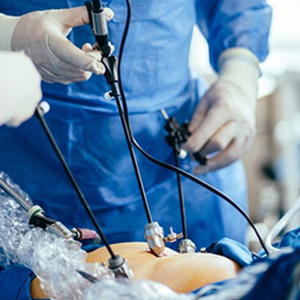General and laparoscopic surgeries are two distinct approaches to surgical procedures, each with its unique characteristics, advantages, and applications. Below is an overview of both types of surgeries, discussing their differences, benefits, and common applications.
General Surgery: General surgery refers to a broad category of surgical procedures that involve the abdomen, esophagus, stomach, small bowel, colon, liver, pancreas, gallbladder, bile ducts, and thyroid gland. Best general surgeons in Vijayawada are trained to perform a wide range of operations, from simple incision and drainage procedures to more complex surgeries such as organ transplantation. General surgery at General surgery hospital in Vijayawada is typically performed using traditional, open surgical techniques, which involve making a large incision to access the surgical site.
Advantages of General Surgery:

- Versatility : General surgery doctors in Vijayawada are trained to handle a wide range of surgical procedures, making them adaptable and capable of addressing various conditions.
- Proven Techniques : Open surgical techniques have been used for decades, and surgeons have refined their skills over time, resulting in a high level of expertise and successful outcomes.
- Accessibility : Open surgical techniques provide surgeons with direct access to the surgical site, allowing for precise manipulation and control during the procedure.
Laparoscopic Surgery:
Laparoscopic surgery, also known as minimally invasive surgery, is an advanced surgical technique that involves making small incisions and using a thin, flexible tube with a camera (laparoscope) to visualize the surgical site. This approach reduces the need for large, open incisions and results in less trauma to the body.
Advantages of Laparoscopic Surgery by Laparoscopic surgeons in Vijayawada:
- Reduced Pain and Scarring : The small incisions required for laparoscopic surgery result in less postoperative pain and minimal scarring compared to open surgery.
- Faster Recovery : Due to the reduced trauma to the body, patients typically experience quicker recovery times and can return to their normal activities sooner.
- Lower Risk of Complications : Minimizing the invasion of the body's tissues during laparoscopic surgery may reduce the risk of infection, bleeding, and other postoperative complications.
Few of the General Surgery Applications:
- Appendectomy (removal of the appendix)
- Colectomy (Part of or whole colon is removed)
- Gastric bypass (a weight loss surgery)
- Thyroidectomy (removal of the thyroid gland)
Few of the Laparoscopic Surgery Applications at Laparoscopic treatment hospital in Vijayawada:
- Cholecystectomy (gallbladder removal)
- Nissen fundoplication (treatment for gastroesophageal reflux disease)
- Nephrectomy (removal of a kidney)
- Hysterectomy (removal of the uterus)
In some cases, a surgeon may opt for a laparoscopic approach even for procedures traditionally performed through open surgery if the patient's condition allows it. This conversion from general to laparoscopic surgery can offer the benefits of minimally invasive techniques while maintaining the surgical precision and expertise of open surgery.
